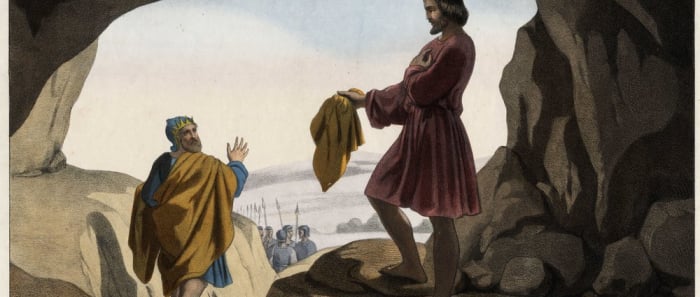Obedience, Betrayal, and the Heart of God — A Lesson from David and Saul
REFLECTIONS
Prince Leunado
9/3/20252 min read


On Sunday, while teaching in the teenage class, I gave the students an assignment:
Choose a Bible character and present as though you were that character.
I encouraged them to be creative, to think beyond what is written, and to imagine what that character may have felt in those moments, the fear, the faith, the failure, the hope.
To illustrate, I used the example of David.
I drew a parallel between David and Saul.
Some of the teenagers pointed out the sins David committed, and I asked them,
“What then was the real difference between Saul and David?”
Obedience vs. Disobedience
The truth is this: God rejected Saul because of his disobedience.
God had commanded Saul to completely destroy the Amalekites.
Why?
Because when the Israelites had just come out of Egypt, weary and vulnerable, the Amalekites attacked them without provocation.
God remembered that act and swore that their judgment would come.
When Saul was given the clear instruction to carry it out, he disobeyed.
He did things his own way.
He spared what he thought was valuable and tried to justify it with sacrifice.
That’s why the prophet Samuel declared:
“To obey is better than sacrifice, and to heed is better than the fat of rams.” — 1 Samuel 15:22
David’s Sin and Sincere Repentance
Now, David also sinned — many times.
But unlike Saul, David repented sincerely.
He didn’t justify his actions.
He didn’t shift blame.
He fell before God in brokenness.
And though God forgave him, David still faced the consequences of his actions.
After his sin with Bathsheba and the murder of Uriah, God sent the prophet Nathan to confront him.
Nathan said,
“What you did in secret, I will expose in public.” — 2 Samuel 12:12
And it happened.
David’s son Absalom disgraced him publicly by sleeping with his concubines in the sight of all Israel.
The Pain of Betrayal
It’s painful, isn’t it?
To be betrayed by someone you deeply love.
Despite all Absalom did, David still loved him.
He even commanded Joab,
“Deal gently for my sake with the young man Absalom.” — 2 Samuel 18:5
That moment revealed the heart of David, and even more, it reflected the heart of God.
God loves us deeply.
But that love doesn’t cancel the consequences of our actions.
You can commit a sin, repent, and be forgiven, yet the ripple effects of that sin may remain.
If someone kills another person, God can forgive the murderer, but the law of the land will still send him to prison.
Forgiveness does not erase responsibility.
The Lesson I Left with the Teenagers
When someone loves you, do not betray their trust.
Betrayal cuts deeply.
Love is costly.
And disobedience, even when forgiven, still leaves scars.
“The sacrifices of God are a broken spirit; a broken and contrite heart, O God, you will not despise.” — Psalm 51:17
So walk in obedience.
Honour love.
And remember — repentance restores relationship, but scars remind us of the cost.


